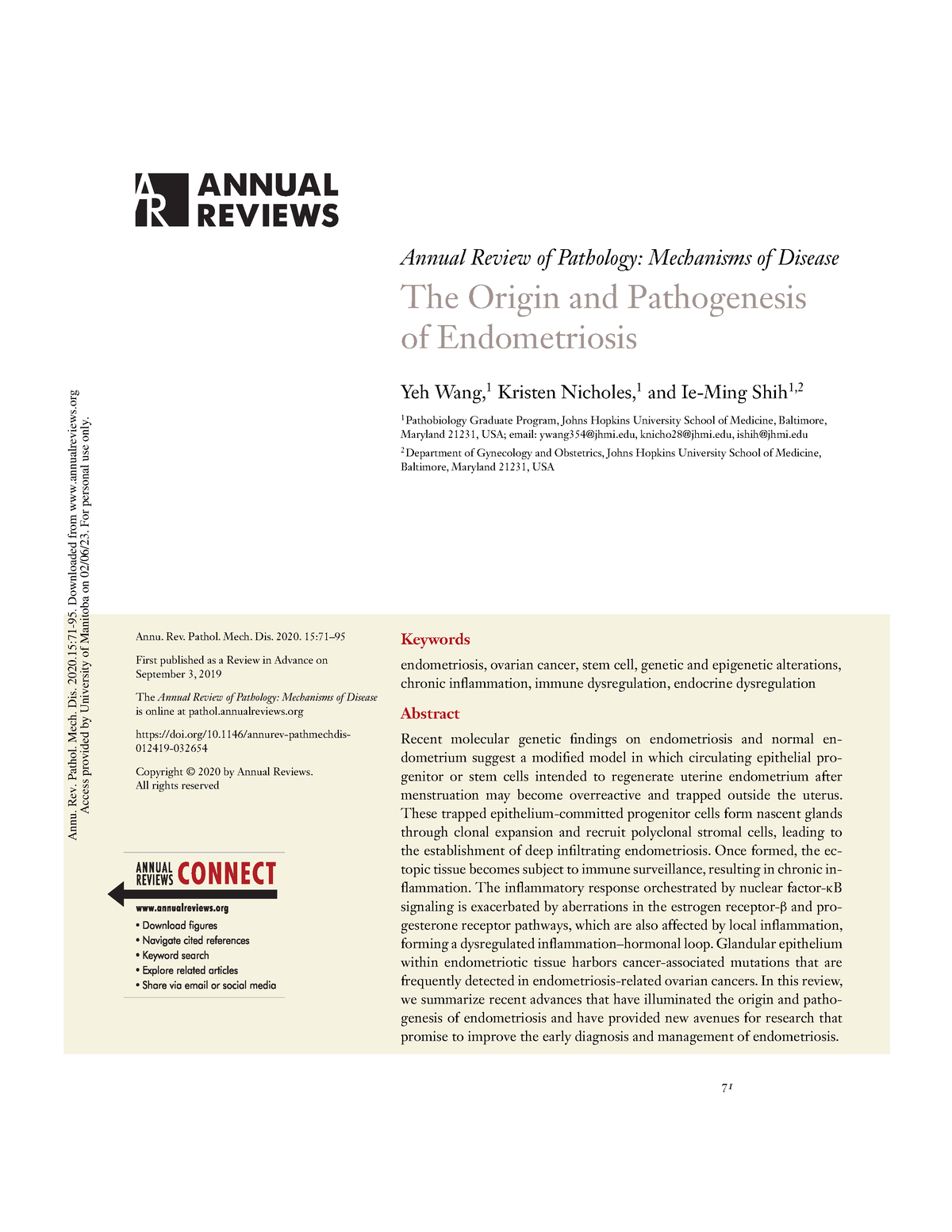骨骼肌疾病中的自噬缺陷。
IF 28.4
1区 医学
Q1 PATHOLOGY
Annual Review of Pathology-Mechanisms of Disease
Pub Date : 2020-01-24
DOI:10.1146/annurev-pathmechdis-012419-032618
引用次数: 35
摘要
自噬是一种进化上保守的分解代谢过程,针对不同类型的细胞质货物(如大量细胞质、受损的细胞器和错误折叠的蛋白质聚集体)进行溶酶体降解。自噬在生物应激反应中被激活,在维持正常细胞稳态中也发挥着关键作用;后一种功能对于有丝分裂后代谢活性组织(如骨骼肌)的完整性尤其重要。通过损害肌肉稳态,自噬功能障碍参与了许多不同骨骼肌病的发病机制;观察到的自噬缺陷因疾病而异,但已被证明涉及自噬级联的所有步骤(从诱导到溶酶体货物降解),并损害大量和选择性自噬。为了强调自噬缺陷的不同肌病之间共享的分子和细胞机制,我们根据潜在自噬缺陷而非病因或临床表现来讨论这些疾病。《病理学年度评论:疾病机制》第15卷预计最终在线出版日期为2020年1月24日。请参阅http://www.annualreviews.org/page/journal/pubdates用于修订估算。本文章由计算机程序翻译,如有差异,请以英文原文为准。
Autophagy Defects in Skeletal Myopathies.
Autophagy is an evolutionarily conserved catabolic process that targets different types of cytoplasmic cargo (such as bulk cytoplasm, damaged cellular organelles, and misfolded protein aggregates) for lysosomal degradation. Autophagy is activated in response to biological stress and also plays a critical role in the maintenance of normal cellular homeostasis; the latter function is particularly important for the integrity of postmitotic, metabolically active tissues, such as skeletal muscle. Through impairment of muscle homeostasis, autophagy dysfunction contributes to the pathogenesis of many different skeletal myopathies; the observed autophagy defects differ from disease to disease but have been shown to involve all steps of the autophagic cascade (from induction to lysosomal cargo degradation) and to impair both bulk and selective autophagy. To highlight the molecular and cellular mechanisms that are shared among different myopathies with deficient autophagy, these disorders are discussed based on the nature of the underlying autophagic defect rather than etiology or clinical presentation. Expected final online publication date for the Annual Review of Pathology: Mechanisms of Disease, Volume 15 is January 24, 2020. Please see http://www.annualreviews.org/page/journal/pubdates for revised estimates.
求助全文
通过发布文献求助,成功后即可免费获取论文全文。
去求助
来源期刊
CiteScore
62.60
自引率
0.00%
发文量
40
期刊介绍:
The Annual Review of Pathology: Mechanisms of Disease is a scholarly journal that has been published since 2006. Its primary focus is to provide a comprehensive overview of recent advancements in our knowledge of the causes and development of significant human diseases. The journal places particular emphasis on exploring the current and evolving concepts of disease pathogenesis, as well as the molecular genetic and morphological changes associated with various diseases. Additionally, the journal addresses the clinical significance of these findings.
In order to increase accessibility and promote the broad dissemination of research, the current volume of the journal has transitioned from a gated subscription model to an open access format. This change has been made possible through the Annual Reviews' Subscribe to Open program, which allows all articles published in this volume to be freely accessible to readers. As part of this transition, all articles in the journal are published under a Creative Commons Attribution (CC BY) license, which encourages open sharing and use of the research.

 求助内容:
求助内容: 应助结果提醒方式:
应助结果提醒方式:


